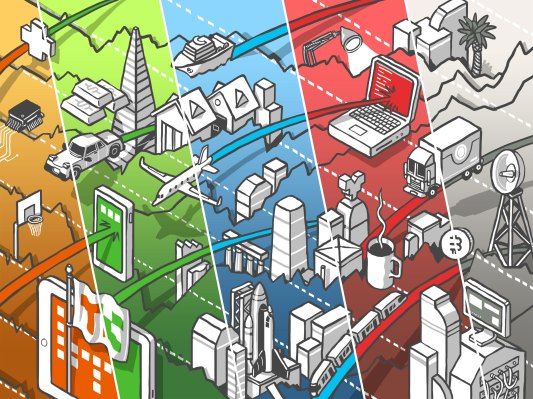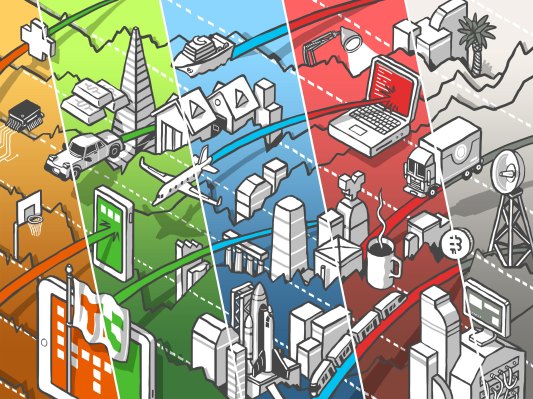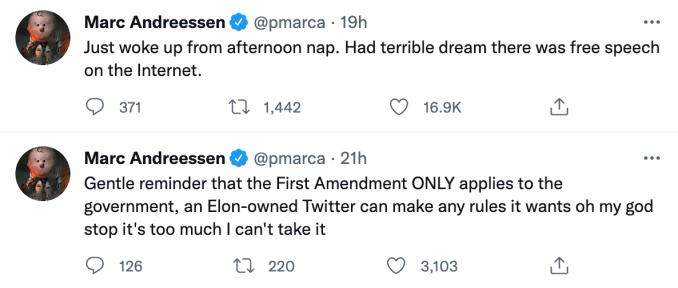Entertainment
What’s the real argument in favor of Musk buying Twitter?


Welcome to The TechCrunch Exchange, a weekly startups-and-markets newsletter. It’s inspired by the daily TechCrunch+ column where it gets its name. Want it in your inbox every Saturday? Sign up here.
The move by Elon Musk to try and buy Twitter has proved polarizing. Not that we should be surprised; mega-deals are always clarifying moments. But the Musk-Twitter saga has also brought with it enough external that the discussion on the proposed transaction can be a little hard to parse.
Perhaps no commentary has been more humorous than Marc Andreessen’s recent barrage of tweets on the matter, inclusive of visual and written memes. It appears that Andreessen has decided that Twitter is too censorious, and that if Musk bought the company, it would become a land of freer speech.
That’s a concept.
We don’t have time to wade through all of Andreessen’s elliptical political meanderings. Perhaps another time. A sample of the more plainly worded missives:

There does seem to be a sort of collection of venture players congregating in Florida — where @pmarca recently dropped a reported quarter-billion on real estate — with a certain philosophical bent that’s worth examining. What I am starting to view as the Thiel-Musk-Andreessen viewpoint is somewhat simple: Anything that impedes the ability of a select group of billionaires to do whatever they want is tyranny.
This means that Twitter — which has a long history of making mistakes but is working toward a platform that is at once pretty open and not so toxic as to become unusable — is in their sights. How free Twitter is or isn’t in your view will depend somewhat on your priors; mostly I think that the service has done a pretty good job balancing things out over time.
So, whither the criticism? I figured I would take a look. Some notes from the field:
- Substack, backed by Andreessen’s venture capital firm, has a somewhat strict set of content guidelines — things that you are not allowed to say or publish on its service. Most of it is pretty standard. No inciting hate against protected classes? Reasonable. A blanket ban on porn? That’s far more censorious than Twitter, frankly. You can post all the visual smut you want on Twitter.com, to pick an example.
- Rumble, backed by Thiel, has an extensive set of content notes as well. Indeed, the right-wing favored, soon-to-go-public-via-SPAC service says that its users “may not post or transmit any message which is abusive, inciting violence, harassing, harmful, hateful, anti-semitic, racist or threatening.” I mean, that’s pretty broad and cuts against the view that free speech is something that you cannot enjoy on Twitter!
- Facebook is the final piece of data for this chat. Marc Andreessen is on Facebook’s board. And while Facebook’s terms are myriad, its views on speech are somewhat constrained — show a nipple on Instagram and watch what happens — and yet Andreessen has been content to cash Facebook checks since time immemorial.
How can the Miami venture cohort find such annoyance with Twitter when they are backing or helping run services with similar or stricter terms of service? Apart from the fact that they may not give a shit about being hypocritical, I think instead they are merely worried about something that they want to say becoming censored.
Musk tweets incessantly, and to apparently no censorship. (Is this all about bringing Trump back to Twitter? Recall that the former president is also banned from Facebook, where Andreessen currently works part time.)
Part of me wants Musk to buy Twitter so that he can struggle to handle the complex social dynamics of moderating content. It’s not easy or simple. And it’s not something you can get right all of the time — all you can hope for is a balance of open conversation and the minimum regulations needed to keep the commons clear of most forms of abuse. This means that you can’t threaten to kill people on Twitter, but you can TERF it up all you’d like.
I don’t think that what the collection of mega-wealthy techies wants really free speech. I think, instead, they want to be able to express their views without any public pushback. I am reading between the lines, but after tracking the folks in question through myriad news cycles and reading their missives, I keep wondering if free speech to them simply means not being forced to absorb feedback about their provincial ideas.
None of the folks in question need any more money. And they also don’t lack conviction in their beliefs. So why not just say all the things? That would be using their own right to free speech — the government can’t say a damn thing about their perspectives, so pop off, yeah? See what happens. I doubt their views would get them booted off Twitter. They might engender some disgust from folks who disagree, but, well, so what?
Remember when Andreessen defended colonialism and then had to eat crow publicly? I doubt he would backtrack now. So if everyone’s so worried about being censored, let’s put some speech cards on the table. Let it rip!
-

 Entertainment7 days ago
Entertainment7 days agoWhat’s new to streaming this week? (Jan. 17, 2025)
-

 Entertainment6 days ago
Entertainment6 days agoExplainer: Age-verification bills for porn and social media
-

 Entertainment5 days ago
Entertainment5 days agoIf TikTok is banned in the U.S., this is what it will look like for everyone else
-

 Entertainment5 days ago
Entertainment5 days ago‘Night Call’ review: A bad day on the job makes for a superb action movie
-

 Entertainment5 days ago
Entertainment5 days agoHow ‘Grand Theft Hamlet’ evolved from lockdown escape to Shakespearean success
-

 Entertainment6 days ago
Entertainment6 days ago‘September 5’ review: a blinkered, noncommittal thriller about an Olympic hostage crisis
-

 Entertainment6 days ago
Entertainment6 days ago‘Back in Action’ review: Cameron Diaz and Jamie Foxx team up for Gen X action-comedy
-

 Entertainment6 days ago
Entertainment6 days ago‘One of Them Days’ review: Keke Palmer and SZA are friendship goals




















